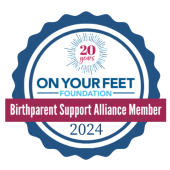Finding Comfort in Support Groups for Adoption

Why Support Groups for Adoption Matter
Beyond paperwork and waiting periods, adoption involves building new family dynamics and addressing the unique challenges that can arise. Adoptive parents often face moments of uncertainty, questioning how their child will adapt to their new environment or how to address sensitive topics such as birth family connections and cultural identity. These concerns are common, which is why support groups for adoption play such a valuable role in providing reassurance, shared experiences, and practical guidance.
These groups are tailored to foster belonging, giving members the opportunity to speak with people who understand both the highs and lows. Parents often report feeling a sense of relief knowing they aren’t alone, and many find comfort in the exchange of personal stories that bring lessons or reassurance.
Many support groups collaborate with adoption education programs to provide accurate, up-to-date information on parenting strategies, legal processes, and emotional bonding techniques. When combined, these resources create a well-rounded support system that’s difficult to find elsewhere.
What Happens in a Support Group?
- Open Conversations: Participants are encouraged to share their concerns, successes, and questions.
- Expert Guidance: Some groups offer guest speakers or facilitators trained in adoption counseling or legal advice.
- Adoption Resources: Members can exchange tips about helpful organizations, parenting strategies, or other resources like books, training, and podcasts.
- Peer Mentorship: Families who have already adopted or placed a child for adoption often mentor newer members, offering personal insight that isn’t always found in books or online articles.
The Role of Adoption Education Programs
1. Child Development and Trauma-Informed Parenting:
2. Cultural Identity and Heritage:
3. Legal and Emotional Complexities:
4. Building Resilience and Coping Skills:
Finding Support Groups for Adoption That Fit Your Needs
- Group Focus: Some groups cater specifically to one part of the adoption triad, like adoptive parents, while others are open to a mix of people touched by adoption in all capacities.
- Format and Size: Smaller groups often feel more intimate and allow for deeper discussions, while larger groups may offer more resources and perspectives.
- Professional vs. Peer-Led: Professional groups may be led by adoption counselors or social workers, providing access to expert advice, while peer-led groups prioritize shared experiences.
- Adoption Stage: Some groups cater to pre-adoption stages, while others focus on post-adoption support.
Overcoming Barriers to Joining a Support Group
- Start Small
Attend a single meeting to gauge the group’s atmosphere. There’s no pressure to commit right away. Sometimes, just observing and listening can help parents feel more comfortable before actively participating.
- Opt for Online Groups
Virtual meetings can feel less intimidating for first-timers and offer privacy. Joining from the comfort of home allows parents to test the waters without the added pressure of face-to-face interaction.
- Bring a Support Partner
Some families feel more comfortable attending meetings with a spouse, co-parent, or trusted friend. Having someone familiar by their side can help ease anxiety and provide moral support during the discussions.
- Speak with Facilitators
Reach out to group leaders beforehand to address concerns and understand how meetings are structured. Facilitators can provide reassurance and suggest specific sessions or topics that fit the family’s comfort level.
Taking gradual steps helps families ease into support groups, often transforming initial apprehension into a sense of belonging as they build connections with others who share similar experiences.
How Support Groups for Adoption Strengthen Family Bonds
Support groups play a significant role in strengthening the bond between parents and their children. When parents receive the guidance and reassurance they need, it positively impacts how they respond to their child’s emotional needs.
For adoptive parents, these groups help them gain insight into behaviors that may stem from their child’s unique background. For example, they can learn how to approach conversations about identity, feelings of abandonment, or confusion surrounding birth families. When parents understand the root of these behaviors, they can provide the right level of empathy and support, creating a stronger parent-child relationship.
Support groups for adoption also emphasize the importance of open communication. Parents learn communication strategies to keep conversations ongoing, ensuring that their child feels comfortable discussing their adoption story as they grow. Addressing difficult topics early and with compassion can help families foster an environment where children feel loved, accepted, and understood.
Support for Birth Parents
The adoption process doesn’t end after placement, especially for birth parents. For many, the emotional period after placement can be overwhelming. Feelings of grief, guilt, and uncertainty often surface, and it’s important that birth parents have access to support groups where they can process these emotions.
Support groups for birth parents create a space for healing. In these groups, they can share their experiences, gain insight from others, and access resources like counseling or adoption education programs to help them navigate life post-placement.
These groups, offered by organizations like On Your Feet Foundation, often emphasize that healing doesn’t mean forgetting or moving on, it means acknowledging emotions and finding healthy ways to cope. Many birth parents who attend support groups report feeling a sense of relief as they hear from others who have walked a similar path. In some cases, these connections lead to meaningful friendships with adoptive families, fostering a support system that benefits everyone involved in the adoption triad.
Additional Adoption Resources and Groups
- Adoption Education Programs: Designed to equip families with the knowledge and tools they need, these programs cover everything from legal processes to developmental milestones and cultural integration.
- Online Communities: Virtual forums and social media groups provide access to large networks of adoptive families, birth parents, and adoptees. These communities often share advice, personal stories, and adoption-specific tips.
- Counseling Services: Professional therapists specializing in adoption can offer individual or family counseling to help address emotional challenges.
- Workshops and Conferences: Many organizations host events where families can learn, network, and participate in interactive sessions on various adoption topics.
Finding Comfort in Support Groups for Adoption
Visit Us for More Support and Resources
Interested in connecting with others who understand your adoption experience? Resources and support groups for adoption can make all the difference. At the Adoption Center for Family Building, we’re committed to helping families thrive by providing access to expert guidance, compassionate support, and trusted adoption education programs. Visit our website to explore our services or contact us directly to learn how we can help your family flourish.



